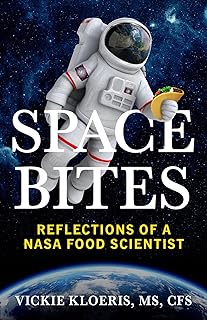Scientists recently achieved a significant milestone by successfully fermenting soybeans to create miso on the International Space Station. Miso, a traditional Japanese condiment, is typically made by fermenting soybeans, salt, and kōji, a type of mold. This groundbreaking experiment involved a collaborative effort between scientists, bioengineers, and culinary experts, marking a unique exploration of microbiology in space.
The resulting “space miso” displayed subtle variations in taste, aroma, and appearance compared to Earth miso. Despite these differences, researchers noted that the essence of miso remained unchanged, highlighting the adaptability of microbial processes in extraterrestrial environments. The project not only added a creative twist to microbe experiments on the ISS but also shed light on the influence of microbes in space exploration.
Lead author Maggie Coblentz, from the M.I.T. Media Lab, emphasized the nutritional benefits and flavor diversity that fermenting in space could offer astronauts. By enabling astronauts to produce their own food, fermentation could enhance autonomy and well-being during extended space missions. Additionally, the fermentation process in space provided insights into microbial communities’ resilience and adaptability to extraterrestrial conditions.
From an astrobiological perspective, the miso fermentation experiment highlighted the ability of microbial life to thrive in space. Factors such as temperature, atmospheric pressure, and light levels, crucial for miso quality, were significantly altered in the space environment. The study’s co-lead author, Joshua Evans, noted intriguing differences in the microbial profiles of space miso, suggesting potential mutations due to cosmic radiation and microgravity effects.
Following a 30-day fermentation period on the ISS, the space miso was returned to Earth for analysis. Apart from its culinary appeal, miso’s probiotic properties could benefit astronauts’ gut health, particularly important in space where maintaining a healthy microbiome is challenging. Astrobiologist Jay Nadeau highlighted the significance of fermented foods in supporting astronauts’ well-being and taste preferences, underscoring the importance of exploring diverse food options in space.
Coblentz emphasized the role of food diversity in enhancing astronauts’ physical and mental performance by catering to their individual tastes and dietary needs. The successful fermentation of miso in space not only expanded the variety of available foods but also showcased the intricate microbiological processes at play within the seemingly sterile environment of a space station.
As astronauts venture into space, they carry with them their unique microbiomes, shaping their interactions with the environment and the foods they consume. The culmination of fermenting miso in space not only demonstrated the feasibility of such processes beyond Earth but also highlighted the interconnectedness of microbial life with human exploration in the cosmos.
📰 Related Articles
- Pakistan’s Historic Space Mission: Sending First Astronaut to Chinese Space Station
- eBay Report Reveals Fall 2025 Luxury Fashion Trends
- abrdn UK Smaller Companies Growth Trust Reveals NAVs Transparency
- abrdn Holdings Reveals NAVs, Enhancing Investor Insights
- Woman’s Shein Top Purchase Reveals Unexpected Detail, Sparks Online Conversation






